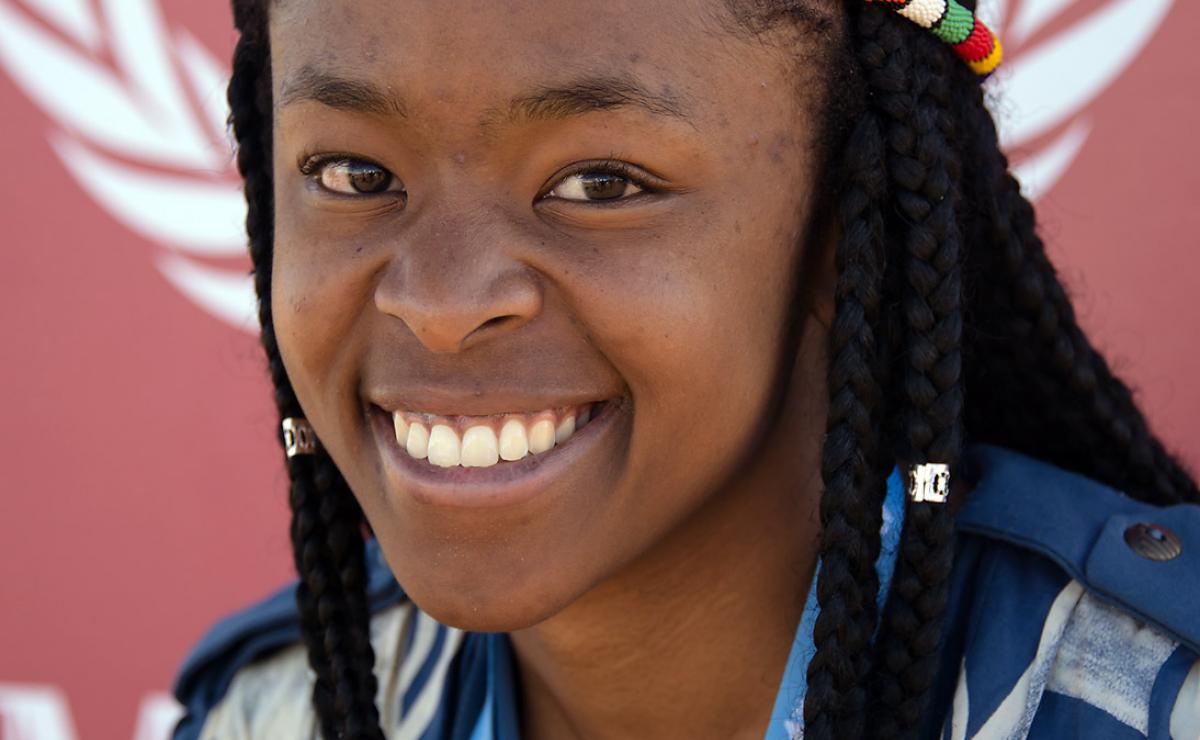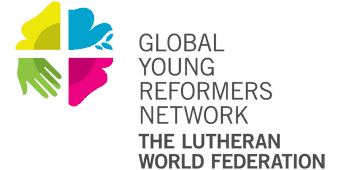Youth are making a difference as climate advocates

Caroline Ditebogo Lebea is a member of the LWF delegation at the UN climate conference in Marrakech, Morocco. She shares some of the lessons youth are learning and the experiences they bring.
In the Book of Genesis [1:1-24] we learn about how God perfected the world—from nothing, God made light, separated water from land, created plant life and vegetation, filled the waters with living creatures, the sky with birds and lastly filled the land with living creatures. This is the story of creation. Thereafter, God created humanity to care and love the creation. Today we find ourselves congregating at another United Nations climate conference, trying to find solutions for climate change, a consequence for which we human beings are responsible.
It is impressive to see how faith-based organizations have evolved through the century and realized how they can use their influence on society to educate and address climate change issues. By the second day of the 22nd session of the Conference of the Parties (COP) taking place in Marrakech, Morocco, 7-18 November, faith-based organizations had already made their mark by engaging with civil society in side events as well as negotiations.
It is encouraging to see the initiatives taken by churches such as educating congregants and community members about climate change, setting up tree planting and gardening projects, deciding to not invest in fossil fuels, and furthermore pledging to reach zero carbon emission by 2050.
Understanding the issues
It is great to see how youth have taken charge in the area of climate change as the generation that will face the consequences as time goes on. Much praise and appreciation goes to Biruk Kebede, LWF Ethiopia program coordinator, who successfully represented not only The Lutheran World Federation but all faith-based organizations at a side event discussing education and youth in climate change. In his presentation, not only did he successfully express the role of churches in tackling climate change and the progress they’ve done in doing so, he also incorporated practical examples that captivated the audience and clearly stated important points in a manner that all could understand. It is essential that when educating people about climate change, information should be presented in the simplest way for all to understand and absorb.
So far the COP 22 experience has been for me a very challenging, sometimes confusing, yet such an insightful experience. We all feel a bit more informed about climate change issues, specifically in Africa, and are eager to learn more about the difference we can make at the grassroots level, since youth also represent the overwhelming majority of the African population that is vulnerable to climate change.
Ms Caroline Ditebogo Lebea is a youth leader and young Reformer in the Evangelical Lutheran Church in Southern Africa-NT, where she is also engaged in projects raising awareness about environmental conservation. This is the first time that the 19-year-old is taking part in a COP as a member of the LWF delegation.
Related links
COP22 Interfaith climate statement: www.interfaithstatement2016.org/
Photos from faith-based events at COP22: www.oikoumene.org/cop22photos
WCC work on care for creation and climate change: www.oikoumene.org/en/what-we-do/climate-change
LWF at COP22: www.lutheranworld.org/content/un-climate-change-talks-cop22
ACT Now for climate: www.actalliance.org/cop22
